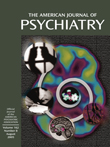Anticraving Medications for Relapse Prevention: A Possible New Class of Psychoactive Medications
Abstract
Psychiatrists have gradually developed a list of medications that are effective in the treatment of addictive disorders. Although alcoholism has received the most attention, nicotine, heroin, and cocaine have all been shown to be influenced by heredity. Of course, the immediate goal is the reduction of drug craving and the prevention of relapse to compulsive drug taking. A medication that can aid in the maintenance of the opiate-free state is naltrexone, a specific opiate antagonist. Naltrexone is also a good example of an anticraving medication used in the treatment of alcoholism. Clinicians currently have two types of medication to aid in the treatment of tobacco use disorder, arguably the most important addiction. Bupropion and nicotine replacement can be given in a coordinated fashion to provide the best available results. At present, no medication is approved by the Food and Drug Administration for the indication of cocaine addiction. Recently, however, five different medications, already approved for other purposes, have been found to be effective among cocaine addicts. Despite clinical trials that show benefit, anticraving medications are not well known and are underused by clinicians. Addiction is a heterogeneous condition, with variability in reactivity to the drug of abuse and to the medications available to treat it. Recent developments in pharmacogenetics may result in improved selection of medications based on genotype.



